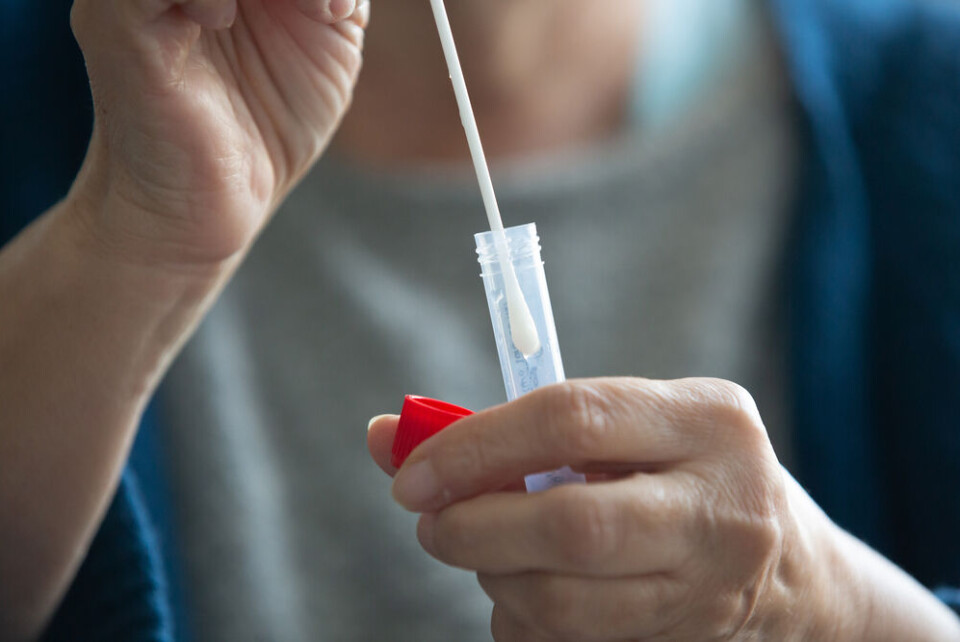-
France to host first NFL regular-season game at Stade de France in 2026
The US’s National American Football League has over 14 million fans in France
-
Storm Leonardo set to impact France in next few days
Heavy rain forecast in the south of the country as storm hits Spain
-
French village creates new ‘no door-to-door sales’ sticker
Authorities have also brought in heavy sanctions for unwanted sales approaches
Covid France: Changing rules for testing and quarantine this summer
The health minister revealed new rules for testing, tracing and isolating in France this summer. We explain

Health Minister Olivier Véran has announced new plans to strengthen testing, tracing and isolating measures currently in place in France.
The changes come as people are expected to travel for holidays over the summer, and as cases of the highly-contagious Delta variant continue to rise in France – even though overall cases are falling.
Read more: ‘Epidemic receding rapidly’: France’s positive Covid news in numbers
Speaking to Le Journal du Dimanche on June 19, Mr Véran said of the new rules: “This summer will be different from last year, and certainly calmer for people in France, as we have more tools at our disposition”
Self-testing at the beach and other holiday destinations
Self-tests will be distributed for free on beaches, in campsites, in hotels and in sports centres.
Mr Véran said that the tests “would not replace PCR tests, or antigen tests, but will add an extra string to our bow”.
Two million self-testing kits will be made available in selected locations in July and August to enable safe holiday travel.
A further 500,000 will be delivered to prefectures to be given to people living in unstable circumstances.
Five million will be given to leisure centres and holiday camps.
Large numbers of tests will also be given to school students before they go on holiday, and to public and private sector workers.
Sniffer dogs may be used soon
Sniffer dogs may soon be deployed to identify people who have Covid-19.
The health minister said: “We now have the proof that the method works in real life thanks to very promising results from research teams at [university hospital] AP-HP.
“Wider use will come into effect this summer, if the latest results are conclusive.”
More staff for testing and contact tracing
Specialist Covid staff will be introduced in selected locations to give advice on testing, isolation and vaccination.
Mr Véran said: “They will be everywhere; holiday sites, campsites and holiday camps.”
An additional 2,000 “anti-Covid workers” will assist the Assurance maladie, being able to administer tests and support people isolating at home to improve contract tracing measures already in place.
Mr Véran said: “Up until spring contact tracing was only done for contact cases of an infected person. From the beginning of July, a deep study will be done systematically to understand who was infected in which circumstances.”
He said this “retroactive tracing” would go back as far as possible up transmission chains especially for clusters of cases, and involve workers from the Assurance maladie and regional health agencies.
Stricter isolation monitoring
As the highly-contagious Delta variant continues to be monitored in France, follow-up care for infected people who are isolating will also be strengthened.
The health minister said: “If someone contaminated with the Indian [Delta] variant refuses to respond to teams from the Assurance maladie or to respect stay-at-home rules, prefects will be alerted. They can take measures to isolate the individual.”
He added that the new rules had been introduced as “we cannot take the risk of there being a new wave of the epidemic”.
To this end, isolation centres will be established to house people unable to isolate as they are living – or on holiday – with others in cramped conditions.
Related stories
France’s Covid-19 curfew ends after over half a year in place
























